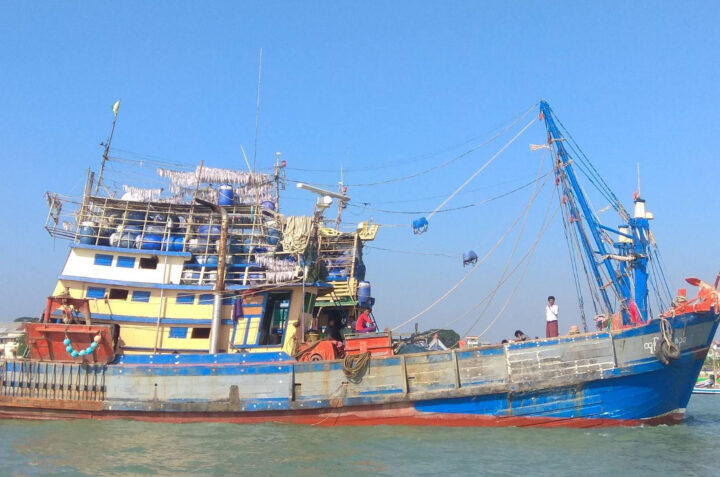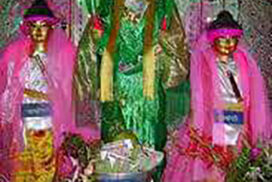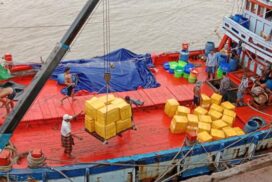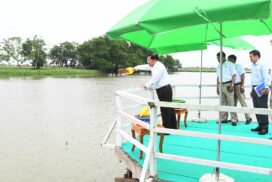The trespass of the fishing boats in restricted areas off the Rakhine coast and littering in the water have damaged the food chain of marine life, making it necessary to prevent environmental damage and depletion of fish stocks.
In the past, many species of seasonal fish were eaten, but now they are caught with nets smaller than the standard nets. During the spawning season, they are caught in the sea, near the shore, and rivers and creeks. The catch has increased more than the annual fish production, which has led to the scarcity of water resources. In addition, littering both on the surface and underwater has become a threat to the development of water resources.
In Rakhine State, the breeding rate of freshwater/saltwater fish, lobsters and other high-value fishery products decreases every year due to monthly inshore fishing, including in spawning season, in the Thandwe area and Sittway coast, which are the no-fishing zones. Although the Department of Fisheries has taken action, the lack of compliance with fisheries laws has affected the long-term sustainability of fishery resources.
The Fisheries Department is working together with the Department of Environmental Conservation to reduce plastic waste as microplastics are high in the Rakhine Sea and near the coast based on a research survey. The Department is educating fishermen in villages close to the department not to throw plastic items into the water when they go out to sea.
U Thet Oo, Director of the Department of Fisheries in Rakhine State, said, “We monitor offshore fishing vessels by fishing vessel monitoring equipment to make sure they do not enter restricted areas and areas where the two countries may have maritime disputes.”
“The problem is that there is unregulated fishing as there are many inshore fishing boats off the coast of Rakhine, so everyone needs to work together to make up for the depletion of fish stocks,” he added.
Along with the depletion of fish resources, encroachment on non-fishing areas, wastes, the flow of pesticides used in agriculture, are directly or indirectly affecting aquatic animals in rivers and streams, affecting their food chain and water resources annually.
In cooperation with Norway to assess the depletion of fish stocks in the Myanmar sea, it has been found that excessive catch of fish has led to a significant reduction of high-value export shrimps and fish, and low-value fish species remained.
The Department of Fisheries has been working to rehabilitate water resources and has been planting fish as per national guidelines for the redevelopment of natural resources in natural waters. According to a survey with Norway, there was an 80% decrease in marine and 60% underwater fish stocks compared to 1980. The survey also stated that most of the waste plastic particles are found in the shallow waters off the Rakhine coast, with the depletion of fish resources.
The Rakhine coast is one of the largest fisheries areas in the world, and the coastal and marine areas now need to be protected from environmental pollution and wastage of fish resources.— Nyein Thu (MNA)/GNLM
Environmental degradation, fish depletion need to be addressed
- September 29, 2021
- 662














